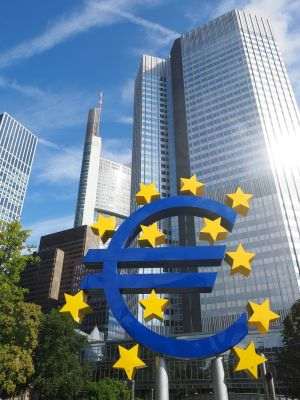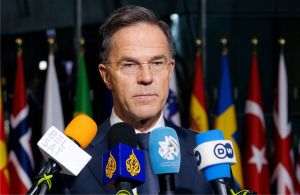The modernization and development of the energy transport and distribution networks for which an estimated financing of between 9.2 and 11.5 billion euros is needed and the achievement of storage capacities of at least 1.2 Gigawatts (GW) by 2030, represents the main objectives of Romania's energy infrastructure, stated, yesterday, the participants of the conference with the theme "Infrastructure development for the production, storage and supply of energy from renewable sources", an event organized in Bucharest by the Romanian-German Chamber of Commerce and Industry (AHK Romania) .
Dan Drăgan, Secretary of State in the Ministry of Energy said: "If we refer to the need to strengthen the network, so far we have allocated over two billion euros in the transmission and distribution network. Approximately 450 million euros have been allocated to Transelectrica, the transport operator, through a project from the Modernization Fund, which means the development of a 400 KW network and the installation of 400 KW digital substations. For the eight distribution areas, which are managed by five companies, we have already allocated 1.3 billion euros".
The representative of the Ministry of Energy mentioned that the financing for production capacities is divided into three categories: renewables (wind, photovoltaic and hydro), nuclear energy and natural gas. He explained that technology in the case of renewable energy is related to photovoltaic panels, which are advancing faster than other projects.
Dan Drăgan said: "The installed capacity so far amounts to 1.8 GWh and already makes us reach the intermediate targets for the year 2026. We are also developing on-shore and off-shore wind capabilities. We must also focus on hydro because we have potential in Romania. We have seen in the last few days the impact on the population and we must take the necessary measures in this direction. We also focus on biomass, biogas and geothermal energy. We have resources in the west of Romania and in the vicinity of Bucharest and we want to use these resources to promote geothermal energy as well, thus reducing CO2 emissions by heating with geothermal energy. This energy can also be used for electricity production".
Regarding nuclear energy, the state secretary specified that our country will have two more CANDU technology units at Cernavodă at the end of the current decade.
"We have had this technology for a long time and we will install two other units, which will be put into operation by 2030-2031 and will also be connected to the network", Dan Drăgan pointed out.
He also mentioned the significant natural gas resources and noted that 80% of national needs are met from onshore production.
Dan Drăgan also said: "From 2027, with the first molecule of gas produced from the Neptun Deep project and connected to the network, we will be able to achieve energy security in the region. Why the gas? We need very flexible capacity to balance all the renewable energy expected to be connected to the grid by 2030. We need at least 4 GW to be added to the grid, which also means a mix of gas and hydrogen. (...) 450 million euros were allocated for the development of new energy production capacities from renewable sources. We have met our targets for 2026 and these production units will be connected to the grid, regardless of whether they are produced at the consumer level or not. Another important aspect mentioned here concerns the rehabilitation of the cogeneration units. We have already signed contracts with local authorities to replace their old installations with cogeneration ones. 350 million euros have already been allocated in this regard".
The Secretary of State specified that, in addition to the money allocated for cogeneration, the territorial administrative units also received 400 million euros for the financing of projects aimed at renewing heating networks.
• Investments of 50 billion euros in energy
Romania's energy strategy, under public debate on the website of the Ministry of Energy, must be combined with the country's industrial policy, says Sebastian Metz, general director of the Romanian-German Chamber of Commerce and Industry (AHK Romania).
Sebastian Metz said: "When we look at the energy strategy, we have to try to combine it with an industrial policy. When we look only at energy, at the energy sector, which needs investment to achieve its goals, we must also look at the country's industrial policy. Investment of 50 billion euros is needed in the electricity network by 2030. There is a need to have a storage capacity of 1.5 GW and a percentage of up to 41% by 2030 of energy from renewable sources, this means solar panels, solar energy - an area where Romania wants to increase the capacity by another 1 GWh until the year 2030".
His lordship showed that in our country there is a need for the modernization and development of energy transport and distribution networks, but also for investments in storage capacities, in digitalization and in smart networks. Sebastian Metz also specified that Romanian-German businesses must be interconnected regarding renewable energy: "German companies, in fact Germany itself, face similar challenges to those of Romania. We also have an important industrial activity in Romania, we have the same profile in Germany, so these two profiles are quite similar and we are in the same situation when it comes to challenges. That's why we can openly share challenges and look for solutions together. I believe that Romania has a wonderful potential, a potential that is absolutely necessary, a good potential, but that must be materialized. Companies are in a position to materialize these opportunities, that's why we invest".
Chistian Plate, the commercial attache of Germany in Bucharest, stated that for the modernization and development of energy transport and distribution networks in our country, but also for the realization of energy storage capacities, companies have European funds at their disposal and recommended the development of partnerships between companies from our country and those from Germany.
Mihnea Cătuţi, head of the Research Department within the Energy Policy Group, mentioned that those investments are necessary because, according to estimates, electricity consumption in our country will increase by 38% by 2030 and will double by 2050. According to Energy Policy Group estimates , in order to make the investments in the energy distribution networks scheduled for completion by the end of 2030, an amount between 9.2 and 11.5 billion euros is needed, to which are added the investments related to the realization of total storage capacities of 1, 2 GWh, but also the start of other projects, such as the implementation of heat pumps, implementation which should be accelerated at the national level despite the limited supply chain.
The conference organized yesterday by AHK was an opportunity to connect B2B companies from Germany with those from our country in order to find together the best solutions for the development of the energy infrastructure in Romania.




























































